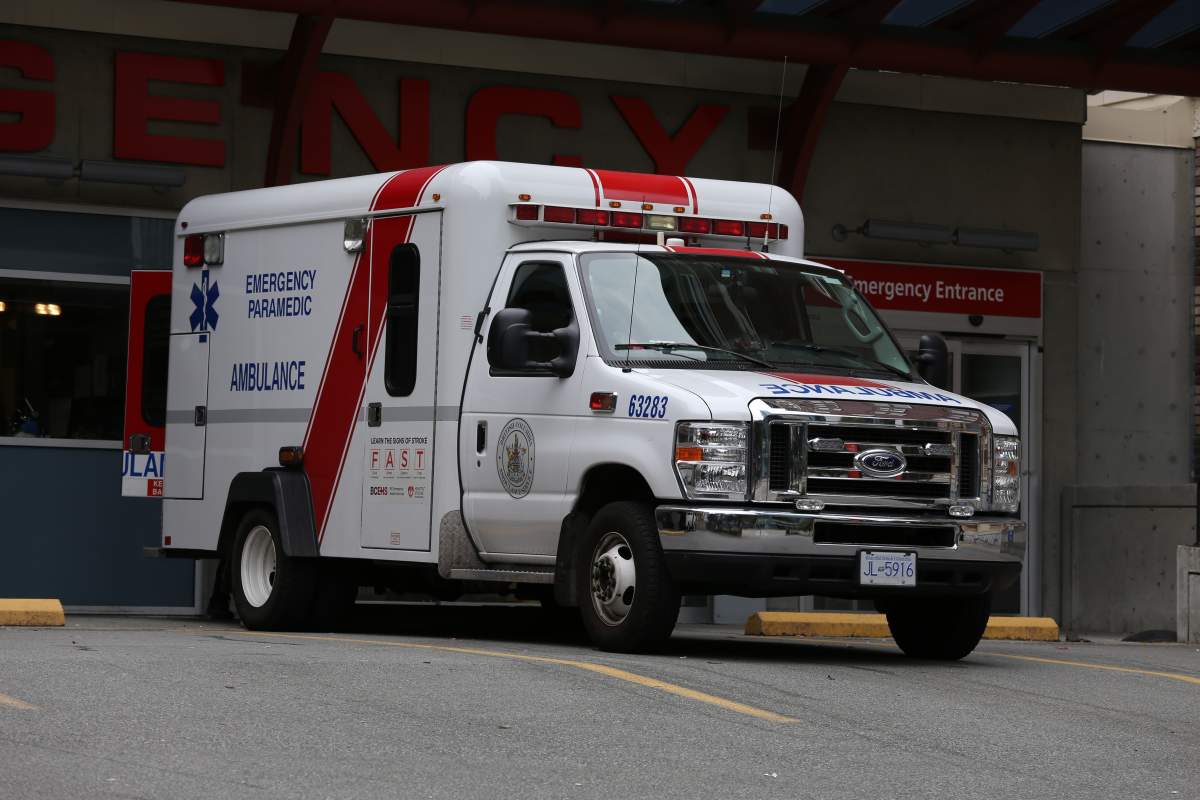British Columbia auditor general Carol Bellringer says ambulances in the province’s urban areas often miss response time targets.

Bellringer’s report says when response time targets are missed, patients may not be receiving the care they need. The auditor general says in an audit on emergency health services that urban area ambulance trips account for 86 per cent of B.C.’s life-threatening 911 calls.
“B.C. Emergency Health Services (BCEHS) is in the midst of a transformational change of its service to better match its resources to patient needs,” Bellringer said. “This includes increasing the number of paramedics and ambulances as well as introducing a new dispatch approach, with the goal of shortening response times for patients who need care the most.”
The audit spans from April 2016 to December 2017. The BC Liberal government was in charge for a majority of the time that the audit was conducted. The report found ambulances in urban areas reached the nine-minute response time target on half of life-threatening calls.
“For example, BCEHS sometimes takes longer than it would like to to reach patients requiring time-critical care,” reads the report. “This increases the risk that some patients do not receive the care they need, when they need it.”
BCEHS has recently added more staff and introduced a new dispatch process. But according to the auditor general, data from 2018 indicates only a slight improvement in urban response times on calls to 51 per cent.

Get weekly health news
“We have made extraordinary improvements in ambulance in everywhere from Nanaimo to Kamloops to Metro Vancouver to Fort St. John,” Health Minister Adrian Dix said. “Our ambulance service in the past has often depended on part-time people, people who are effectively volunteers, that is not a realistic model.”
WATCH (September 28, 2016): Growing concern over B.C. ambulance wait times

Emergency Health Services is now looking at alternatives to traditional emergency response for patients who do not require transport to a hospital. The options include providing medical advice over the phone, transporting patients to a health clinic, or having paramedics provide treatment in private homes or the community.
The audit also calls on a more co-ordinated effort between fire departments and BCEHS.
“Improved co-ordination with fire departments is needed to support consistent application of medical standards, information sharing and improvements to patient care,” reads a statement from the auditor general’s office.
“For a number of reasons, improving co-ordination will not be easy. One challenge is that fire department first responders are employed by local governments, while BCEHS is part of the provincial government.”




Comments
Want to discuss? Please read our Commenting Policy first.